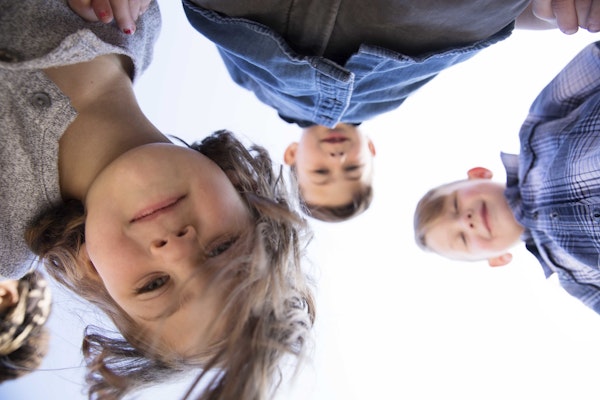Highlights
- Parents find themselves in circumstances where they struggle to offer assurances that "everything will be alright." And the mental health of both parents and children may be at risk. Post This
- Families who flourish through this challenging time will learn to listen, understand, play, learn, laugh, and grieve together. Post This
Editor’s Note: The following essay is the fourth post in our week-long symposium on how the COVID-19 pandemic will affect family life.
The COVID-19 pandemic has brought unpredictability and insecurity to almost every organization on the planet. This includes the most fundamental unit of society: the family. Parents find themselves in circumstances where they struggle to offer assurances that "everything will be alright." And the mental health of both parents and children may be at risk. However, as with most adversities, challenges, and pain, this pandemic may also offer hope, growth, and improvement.
First, the bad news. The COVID-19 pandemic will likely exacerbate psychological issues around safety and security for parents and children. An unpredictable social and economic environment is likely to provoke and increase anxiety. For parents or children with mental illness (or underlying sensitivities), the pandemic is likely to make things worse. Feelings of hopelessness and despair can lead to ruptured relationships and abusive behaviors, and in tragic cases, suicide.
Other challenges might include issues of physical safety for children whose parents may be abusive, aggressive, or perhaps who become unstable due to the factors described above. Children are particularly vulnerable and may be at greater risk at times of social distancing and isolation. This isolation can have more mundane but still terribly challenging implications as social connections atrophy and children (and adults) feel loneliness and the associated melancholy, dysphoria, or depression that so often accompanies isolation.
The good news is that engaged, invested parents may be able to overcome the challenges of the COVID-19 pandemic. Many families will use this time to "get back to basics."
Moreover, basic well-being needs, such as opportunities to keep learning or having a sense of control and autonomy, are likely to be undermined. No one likes being cooped up and told what to do, whether they are 2 or 42. A lack of physical activity and personal space, and the push by some parents to "optimize" their children with accelerated learning, may usurp autonomy, create cracks in connectedness, and undermine motivation for children, while causing additional stress on parents.
However, the good news is that engaged, invested parents may be able to overcome such challenges. Many families will use this time to "get back to basics." They will find ways to connect with frequent touchpoints via technology or with others who have also successfully isolated themselves, allowing for strengthened bonds. They may reconnect with tradition, faith, or other activities that build hope and community. Parents are likely to thrive as they give of themselves to help their children with reading and other mutually enjoyable learning activities. Families who flourish through this challenging time will learn to listen, understand, play, learn, laugh, and grieve together.
COVID-19 will present families with a number of challenges that have not been experienced on a universal scale in several generations. But with challenge comes opportunity, and with opportunity, hope. With compassion, resilience, and a willingness to help, this may be a remarkable time of growth and strength for families.
Dr. Justin Coulson is a bestselling author, husband, and father of six. His latest book is 10 Things Every Parent Needs to Know.













